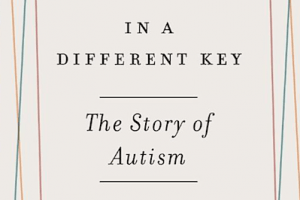Autism Diagnosis May Be Temporary for Some
A minority of children diagnosed with autism spectrum disorders (ASD) -- conditions that are generally considered lifelong -- may carry the diagnosis only temporarily, researchers say.
A minority of children diagnosed with autism spectrum disorders (ASD) — conditions that are generally considered lifelong — may carry the diagnosis only temporarily, researchers say.
MedPage Today reports:
“Among 34 children who were no longer classified as having an ASD by ratings scales and clinical assessment, most had similar scores on socialization, communication, and language as their typically-developing peers, Deborah Fein, PhD, of the University of Connecticut, and colleagues reported in the Journal of Child Psychology and Psychiatry.”
Only a few of those children still had problems with face recognition.
“The results clearly demonstrate the existence of a group of individuals with an early history of ASD, who no longer meet criteria for any ASD, and whose communication and socialization skills … are on par with that of typically-developing individuals,” researchers wrote.
“How often this happens — and whether it truly does — is still controversial. Some studies have put that figure between 3% and 25%,” the site reported.
Researchers conducted tests in language, face recognition, socialization, communication and other areas in youth ages 8 to 21 who appeared to be free of symptoms.
— Posted by Alexander Reed Kelly.
Your support matters…MedPage Today:
Overall, they found that communications scores didn’t differ between the newly “undiagnosed” children and their normal peers. Likewise, there was little difference in most socialization scores — though seven of the cases were judged to have their social functioning mildly affected by conditions such as anxiety, depression, or impulsivity.
… Generally, the kids who lost their diagnosis had somewhat milder ASD symptoms in early childhood, but the researchers questioned the reliability of those assessments, which were largely based on parent recollection — a factor that “may have been colored” by the child’s outcome, they wrote.
But even though the children’s impairments were no longer detected, Fein and colleagues cautioned against drawing firm conclusions noting that it was still possible that subtle residual deficits remained. Studies would need to examine peer interaction and quality of friendships in order to fully assess normal social functioning, they wrote.
Independent journalism is under threat and overshadowed by heavily funded mainstream media.
You can help level the playing field. Become a member.
Your tax-deductible contribution keeps us digging beneath the headlines to give you thought-provoking, investigative reporting and analysis that unearths what's really happening- without compromise.
Give today to support our courageous, independent journalists.





You need to be a supporter to comment.
There are currently no responses to this article.
Be the first to respond.